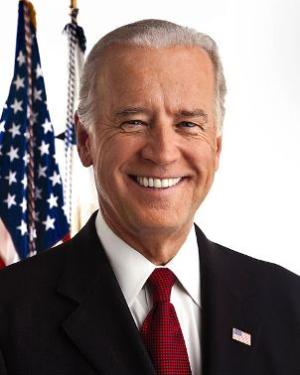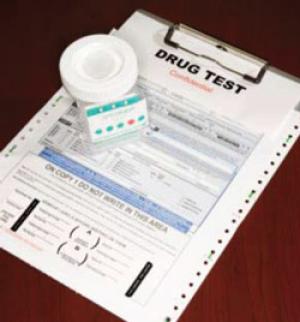There are four marijuana legalization initiative campaigns under way in Oregon, but only two of them look to have a serious chance at making the ballot. One would be enough.
Canada appears set to march boldly backward as the Senate has passed a Conservative crime bill that includes mandatory minimums for growing as few as six marijuana plants.
We continue our newest offer for donating members, the drug policy classic reprint: "The Marijuana Conviction: A History of Marijuana Prohibition in the United States." This is one is available for donations of just $22 or more.
Even though Sen. Rand Paul is blocking federal legislation to ban fake marijuana (and "bath salts"), the DEA has just extended its emergency ban for another six months.
Costa Rican President Laura Chinchilla has joined Guatemalan President Otto Perez Molina in calling for serious discussion of drug legalization.
US Vice President Joe Biden was quick to fight back against the rising clamor for a debate on drug legalization as he landed in Mexico City Monday on a two-day trip to meet with Mexican and Central American leaders.
Iran executed nearly 500 people for drug crimes last year, according to a new report from Iran Human Rights, a Norway-based NGO. Drug executions made up more than 70% of all executions in the Islamic Republic.
Nevada's legislature has failed to provide a way for medical marijuana patients to buy their medicine, and that's unconstitutional, a state district court judge has ruled.
The Florida legislature is one vote away from approving the mandatory, suspicionless drug testing of state employees. The courts may have something to say about that.
Bills are being considered in some states, busts are going on in others, and local governments grapple with medical marijuana from Washington state to New Jersey.
Marijuana legalization got a hearing in the Massachusetts legislature Tuesday. While even the bill's sponsor doubts it will pass, it helps pave the way for a legalization initiative in the future.
The year's 13th domestic drug war death occurred last Tuesday on a South Carolina highway.
Bad cops pay out big in New York, a sheriff cleans house in Florida, a sticky-fingered cop gets in trouble in North Carolina, and a California cop gets caught with his fingers in the dope jar.
The clock is ticking on marijuana legalization initiatives in Oregon. There are currently four different initiative campaigns underway, but at this point, four months away from when signatures must be handed in, only two look like they have any chance of success this year, and both of them are still tens of thousands of signatures from getting on the November ballot.

view of Mount Hood from Portland (photo from usgs.gov)
If one or both of them makes the ballot, the Pacific Northwest could be a real hotbed of marijuana reform activity this fall. An initiative to tax and regulate marijuana is already on the ballot next door in Washington, and nearby, sparsely populated Montana is also the site of an active initiative signature-gathering campaign for legalization with at least decent prospects of making the ballot.
The two best positioned Oregon initiatives are the
Oregon Cannabis Tax Act of 2012 (
OCTA) and the
Oregon Marijuana Policy Initiative (
OMPI), which are well into their signature-gathering campaigns. Essentially serving as
placemarkers for the next electoral cycle are the
Control, Regulation, and Taxation of Cannabis Act (
CRTC), which was just approved for a draft title, and an
initiative from
Sensible Oregon, which has yet to be approved for a draft title.
The initiative currently furthest down the path toward the ballot box is the
OCTA (Initiative Petition #9), sponsored by veteran activist and medical marijuana entrepreneur Paul Stanford. It would allow adult
Oregonians to possess and grow their own marijuana. It would allow Oregon farmers to grow hemp. And it would license Oregon farmers to grow marijuana to be sold at state-licensed pot stores. An earlier version of
OCTA failed to make the ballot last in 2010.
OCTA campaign spokespersons said it had so far collected more than 50,000 signatures. It needs some 87,000 valid voter signatures to make the ballot, so
OCTA's goal is to gather about 130,000 to have a comfortable cushion to account for invalid signatures.
Also well-placed is the
OMPI, a constitutional amendment (Initiative Petition #24) to repeal the state's marijuana laws. It is supported by numerous in-state groups. "Except for actions that endanger minors or public safety, neither the criminal offenses and sanctions nor the laws of civil seizure and forfeiture of this state shall apply to the private personal use, possession or production of marijuana by adults 21 years of age and older," the amendment says. "The State may enact laws and regulations consistent with this amendment to reasonably define, limit and regulate the use, possession, production, sale or taxation of marijuana under state law."
The
OMPI campaign, operating as
Citizens for Sensible Law Enforcement, reported 46,200 signatures handed in as of Sunday. But because it is a constitutional amendment,
OMPI must meet a higher signature threshold than other initiatives. It needs 117,000 valid signatures to make the ballot, and the campaign is aiming at turning in 185,000.
The
CRTC (Initiative #44) would remove marijuana from the state controlled substances act and give the legislature the ability to enact laws to control, regulate, and tax commerce in marijuana and industrial hemp.
The Sensible Oregon initiative "would remove existing civil and criminal penalties for adults twenty one years of age, who cultivate, possess, transport, exchange or use marijuana" and require the legislature to come up with a regulatory scheme.
The Sensible Oregon initiative has gathered 746 of the initial 1,000 signatures needed to win a ballot title. Activists are gathering them on a volunteer basis.
Doug
McVay, a long-time activist now (again) working for
Voter Power, the group behind Oregon's successful 1998 medical marijuana initiative, said Voter Power supports any and all of the initiatives, but is concentrating its limited resources on the
OMPI and a second initiative that would create a state-regulated medical marijuana dispensary system.
"It's a tough row to hoe to get enough signatures for a constitutional amendment, but we're still working closely with the campaign, and they're well on track to get there," said
McVay. "And
OCTA, well, God bless them, removing all criminal penalties would be good, and it would be wonderful if they can get it done."
Time is running out on Sensible Oregon, said
McVay.
"When they finally turn in their 1,000 signatures to the Secretary of State, it's going to take a minimum of 50 business days before they can start signature-gathering, and that's if there are no challenges," he explained. "They wouldn't be able to start until mid-May at the earliest, and they only have until July 6. They need to fish or cut bait."
"Unfortunately, our effort is suffering from a lack of resources. We don't have strong outreach," said
Oregon NORML's Madeline Martinez, wearing her Sensible Oregon hat. "We feel strongly that it has the best language for a draft title, and our years dealing with the legislature and lobbying lead us to believe people will be less likely to vote for a constitutional amendment for marijuana," she said.
But the Sensible Oregon initiative is struggling even to get those first 1,000 signatures. "We would like to at least get those signatures so we can get a draft title and poll on that," Martinez said, "but the chances for this year are pretty slim unless we get that draft title and poll well and people start throwing money at us."
Similarly, Anthony Johnson, proponent for the
CRTC, which is just getting its draft title, was setting his sights down the road. "We'll get and improve on our ballot title and do some polling," he said. "We're playing for 2014 and 2016. It looks like the
OMPI has the best chance of qualifying and passing, but even if it did pass, there would still be a need to reform the law."
OCTA proponents did not respond to requests for comment this week, but in a recent communication to activists, Stanford said the campaign had 15 paid signature-gatherers and was in the process of hiring 20 more, as well as more than 900 volunteers. He said he had polls that showed
OCTA could win with 60%, but copies of those polls were not available.
"We have the money in the bank to pay to put
OCTA on the ballot this year and we will do it," he vowed.
But
OMPI is also making a big and well-organized push in the final months.
"I have 220 circulators on the street and we're hiring continuously," said
OMPI proponent Robert Wolfe. "We have money in the bank or pledges to make it all the way. I think I-24 is a lock for the ballot."
Wolfe said
OMPI had polling numbers, but declined to share the actual poll results or
crosstabs.
"We see a standard response that every quasi- or full legalization question gets, in the
mid-50s, but we are heartened by
crosstabs that show we have strong support among youth and the middle aged voters," he said. "Our polling also tells us that a couple of messages resonate. The statement 'We shouldn't be wasting valuable police time and resources arresting marijuana users' polls over 70%, while the statement 'Individuals shouldn't go to jail for growing plants for personal use polls at 68%."
While the
OMPI still needs to gather more than 100,000 signatures, it is confident enough to be looking beyond making the ballot to the actual campaign itself. The effort is looking to tie itself to the strong progressive elements that permeate Oregon politics.
"We are hopeful that we are going to gain the support of the progressive infrastructure here, including labor and the Democratic Party," said campaign strategist Adam Smith. "We feel that our ability to motivate and turn out young voters will be a very valuable part of the progressive campaign here in Oregon. Close to 70% of Democrats here already support legalizing marijuana and a majority of voters overall. This is not a radical idea here; it's not going to be a huge political step for people to get behind it," he said.
They have a fundraising strategy for the general campaign, Smith said.
"We're reaching out to the business community. Like all the states, Oregon is short on resources, and we're spending tens of millions of dollars enforcing low-level marijuana violations," he noted. "Everyone understands that money could be better spent actually protecting people. We think people here in the state will step up. Everyone understands we have a real chance to win," he said.
"We're also hoping that the general momentum of having for the first time multiple states ending marijuana prohibition will get the attention of folks around the country who care about the issue, and they can make donations on our web site or
Facebook page. Those small donations are key, because the large donors look to see that we have a lot of individual people behind us."
Factionalism and infighting has been the bane of the marijuana movement in Oregon, as in so many other places, but this time around, there is hope that once the dust settles, people will buckle down and support an initiative even if it was the one they supported in the beginning.
"I believe that as it becomes clear we're making the ballot and the others don't have the resources, they will in the end coalesce behind us,"
OMPI's Wolfe predicted. "The old style of marijuana politicking has not worked for some time in Oregon; it's time to view this as an important social justice issue like gay rights, equal opportunity, and unions. We're modernizing and mainstreaming this. We will not be having smoke-ins, but we will be putting on ties."
"I'm supporting whatever makes the ballot and I think can win," Martinez said. "I'm on that bus; I don't care who's driving. I just don't want to lose again at the ballot box. Every time they see us lose, it chips away at our credibility."
But first, one or more of the initiatives has to qualify for the ballot. It is by no means a done deal, but it is looking doable.
back to top
The Canadian Senate last Thursday night gave its approval to a government package of crime measures that include a number of harsh provisions, including mandatory minimum prison sentences for growing as few as six marijuana plants. The bill, C-10, the Safe Streets and Communities Act, now heads back to the House of Commons for final approval.

Canada's Senate Chamber
The bill has already passed the House, but members will have to approve amendments adopted by the Senate that more clearly define terrorist activities and how victims of terrorism can seek compensation from groups or states that support terrorism.
Passage in the Senate came after ruling
Conservatives used their majority to limit debate on the measure to six hours. Liberals objected vociferously, but in vain. The only Conservative to vote against limiting debate was Sen. Pierre Claude
Nolin, a long-time advocate of marijuana and other drug law reforms.
"Canadians are expecting us to pass this," said Conservative Sen. Claude
Carignan, explaining that the rush to passage was necessary because the government had promised to pass the legislation within a hundred days of taking office. "The best way to ensure the population is not jaded when it comes to politics is to keep our promises."
Liberals argued that there was enough opposition to the bill that every senator deserved to be heard on the issue, but that argument didn't fly with the Conservative majority.
"There is no excuse for what this chamber is about to do," said Liberal Sen. Joan Fraser. "We should be ashamed of ourselves."
The Senate vote came despite heated opposition, both from within Canada, where
various polls show consistent majority support for marijuana legalization, and internationally. The
Global Commission on Drug Policy this week urged Parliament not to pass the bill, while
Law Enforcement Against Prohibition also urged the Conservatives to reconsider.
While the bill is now almost assured of final passage, opponents have vowed to carry on the fight in the courts. Once the bill becomes law and goes into effect, look for quick challenges to its constitutionality under the Canadian Charter of Rights and Freedoms.
back to top
We continue our newest offer for donating members, the reprinted drug policy classic The Marijuana Conviction: A History of Marijuana Prohibition in the United States. Originally published in 1974, this amazing work by professors Richard Bonnie and Charles Whitebread was the first comprehensive history of marijuana use and its prohibition in the United States. Bonnie and Whitebread's historical overview examines the origins and history of marijuana prohibition as well as the laws' unintended consequences.
Thanks to a generous donation from our friends at the Drug Policy Alliance, we are able to offer this 368-page volume, which retails at $32.49, for $22 including shipping. (Add $2 for Canada or Mexico or $8 for overseas.) Donate $22 or more to StoptheDrugWar.org and you will be eligible to receive a complimentary of The Marijuana Conviction. Click here to make a donation online by credit card or PayPal. You can also donate by mail -- info below.
As a reader of Drug War Chronicle you know that it is a challenging time in drug policy reform. Medical marijuana is under attack; draconian sentencing bills are getting heard in Congress; drug testing bills are spreading from state to state. To help us fight back as hard and as well as we can, I hope you'll consider donating more than $22 if you can afford it, or to supplement your $22 with a continuing monthly donation. If gift items like The Marijuana Conviction are not important to you, I hope you'll consider sending a donation that's entirely for our work. (We are grateful for donations of any size -- don't feel bad if $22 is what you have to spare and you want the book!)
Donations to StoptheDrugWar.org can be made online at http://stopthedrugwar.org/donate, or they can be mailed to: DRCNet Foundation (tax-deductible), P.O. Box 18402, Washington, DC 20036; or Drug Reform Coordination Network (non-deductible for lobbying), same address. (Contact us for information if you wish to make a donation of stock.) Be sure to indicate if you are requesting The Marijuana Conviction or another of our current gift items.
Thank you for standing with us to stop the drug war's cruelties and meet the opportunity this time offers to make a brighter future. And don't get discouraged by the challenges our movement and the cause are currently facing: Time, and the truth, are on our side!
Sincerely,
David Borden, Executive Director
StoptheDrugWar.org
Washington, DC
http://stopthedrugwar.org
back to top
The DEA has extended for another six months its emergency ban on five synthetic cannabinoids used to manufacture "fake weed" products. The chemicals are sprayed on herbal mixtures and the resulting product is sold under names including Spice and K2.
The agency first enacted the ban a year ago, but that emergency ban was set to expire last Thursday. The
DEA published the extension in the federal register that same day.
The extension continues the ban on five synthetic
cannabinoids:
JWH-018,
JWH-073,
JWH-200,
CP-47,497 (that's all one chemical
CP-47,497) and
cannabicyclohexanol. The ban means those substances are treated as Schedule I drugs under federal law.
"Schedule 1 substances are reserved for those substances with a high potential for abuse, no currently accepted medical use in treatment in the United States and a lack of accepted safety for use of the drug under medical supervision," the DEA reminded in a
press release last Wednesday.
The American Association of Poison Control Centers
reported last month that after synthetic marijuana products first appeared on their radar in 2009, generating several hundred calls, the number jumped to 2,906 calls in 2010 and 6,956 last year. Their data also showed that the number of calls peaked in July 2011 at 705 and have declined since then, with 551 calls reported in December.
The poison centers and emergency room doctors have reported such symptoms as disorientation, elevated heart rates, and vomiting, similar to those reported from adverse reactions to marijuana. There are no confirmed reports of overdose deaths, and only a handful of deaths potentially linked to synthetic marijuana, including a trio of suicides after use, a young man killed in a traffic accident while driving after use, and a 13-year-old Pennsylvania boy who smoked synthetic weed out of a plastic
Pez dispenser and later died of complications from a lung transplant.
"We continue to address the problems of synthetic drug manufacturing, trafficking, and abuse. Our efforts have clearly shown that these chemicals present an imminent threat to public safety," said DEA Administrator Michele M.
Leonhart. "This six month extension is critical and gives us the time necessary to conduct the administrative scheduling process for permanent control.
A number of states have and localities have already banned synthetic marijuana, and more are moving to do so this year. Federal legislation that would ban both synthetic marijuana and new synthetic stimulants ("bath salts") has passed the House, but is being blocked in the Senate by a hold placed on it by Sen. Rand Paul (R-KY).
This week, the
Drug Policy Alliance (
DPA) joined the American Civil Liberties Union, NAACP and nearly 40 other organizations on a letter to members of the Senate urging them to oppose the legislation. In a separate press release,
DPA urged Congress to not just reject the synthetic drug legislation but also overhaul US drug policy, pointing out that last year marked the 40
th Anniversary of President Nixon declaring a war on drugs
, and despite the government arresting tens of millions of nonviolent Americans and spending more than a trillion dollars, drugs are cheap, potent, and readily available in every community.
"Senator Rand Paul is standing up to both political parties and doing what it takes to protect Kentucky taxpayers from the career politicians in Washington who want to waste more money on failed drug policies," said Bill Piper,
DPA director of national affairs. "He should be applauded for opposing government waste and supporting public safety. The failed war on drugs costs too much and achieves too little; it is time for a new approach."
back to top
Costa Rican President Laura Chinchilla has added her voice to the rising clamor for discussions on drug legalization as an alternative to the current state of affairs, in which Central American nations see themselves as increasingly threatened by the illicit drug trade. The discussion should go on even if the US opposes it, Chinchilla said.

Costa Rican President Laura Chinchilla (wikimedia.org)
"If we keep doing what we have been when the results today are worse than 10 years ago, we'll never get anywhere and could wind up like Mexico or Colombia," Chinchilla said in San Jose Wednesday in remarks reported by
Bloomberg Business News. There needs to be a "serious" discussion of legalization even if the US disagrees, because Central American nations are "paying a very high price" and "we have the right to discuss it," she added.
Chinchilla made her remarks the same day as she met with Guatemalan Deputy President
Roxanni Baldetti de Paz and a day after she met with US Department of Homeland Security Secretary Janet Napolitano. That same day, Napolitano said the US position is that drug legalization "is not the way" to stop the drug traffic.
She joins Guatemalan President Otto Perez Molina in calling for regional legalization discussions. Perez Molina said last month that he was open to legalizing the use and transport of drugs as part of a crackdown on heavily-armed Mexican drug trafficking organizations whose corrosive influence has been seeping into Central America in recent years.
Perez Molina has been making the rounds seeking more regional support for his proposal. Salvadoran President Mauricio
Funes first seemed to support the notion, then backed away from it, while Panama has rejected the idea outright. So did Honduras, with President
Porfirio Lobo saying legalization would make his country "a paradise" for drug traffickers.
Nicaraguan President Daniel Ortega has not taken a position one way or the other, but said in January that as long the US "continues to fail to control the consumption of drugs, it continues to contaminate and poison this region."
Last month, Mexican Foreign Minister Patricia Espinosa said the Calderon administration was
open to an international discussion of drug legalization. But, like Chinchilla, she was quick to caution that legalization wouldn't mean the defeat of organized crime.
Regional concern about the issue as the Mexican drug traffickers have expanded their presence, bringing both increased drug trafficking and heightened levels of violence with them. In its
annual report, released Monday, the International Narcotics Control Board warned that trafficking levels have reached "alarming and unprecedented" heights, and that cocaine being transshipped through the region may be worth as much as 5% of the region's gross domestic product.
back to top
On the first day of a two-day trip to consult with Mexican and Central American leaders Monday, US Vice President Joe Biden was quick to pooh-pooh any talk about drug legalization. The topic has become an increasingly hot one in the region, as Mexico's drug wars bleed over into its neighbors to the south, and some regional leaders are now calling for discussion of legalization.

Joe Biden
"It's worth discussing, but there is no possibility the Obama/Biden administration will change its policy on legalization," he said after meeting with Mexican President Felipe Calderon.
"It's worth debating in order to lay to rest some of the myths that are associated with the notion of legalization. The debate always occurs, understandably, in the context of serious violence that occurs with the society, particularly in societies that don't have the institutional framework and the structure to deal with organized, illicit operations," he said in remarks reported by the
Associated Press and
McClatchy Newspapers.
Biden, who said he had spent "thousands of hours" at Senate hearings on the issue, said that while drug legalization could do positive things like reducing prison populations, it would lead to more drug use, health problems, and even more bureaucracies.
"It impacts on a country's productivity. It impacts on the health costs of that country. It impacts on mortality rates," Biden said. He added that legalization wouldn't work "unless you are going to not only legalize but you are going to provide a government apparatus for the distribution of the drugs."
Biden's primary purpose for his visit to Mexico City was to meet with the leading contenders in the country's July 1 presidential election, but that has been overshadowed by the legalization debate heating up in the region.
Colombian President Juan Manuel Santos last fall called for an international discussion of drug legalization, but said he would be crucified if he led it. Last month, Guatemalan President Otto Perez Molina, a right-leaning former military officer, called for regional discussions on the issue, and
picked up support from Costa Rican President Laura Chinchilla last week, but not Honduran President
Porfirio Lobo or Panamanian leader
Richardo Martinelli. Salvadoran President Mauricio
Funes first signaled support, but then wavered, while Nicaraguan President Daniel Ortega has yet to announce a position.
All the Central American leaders will meet with Biden Tuesday.
Santos will host the Summit of the Americas April 14-15 in Cartagena, Colombia. He has said drug policies should be debated then. Perez Molina also wants the discussion to get underway there. President Obama is expected to be in attendance.
back to top
The Norwegian-based human rights group Iran Human Rights (IHR) has presented its annual report on the death penalty in the Islamic Republic and announce that at least 676 people were executed there last year. Of those, 480, or 71%, were executed for drug offenses, IHR said.

public mass execution in Iran, 2008 (ncr-iran.org)
The count of 676 executions was based on information reported by official Iranian news, other independent sources, or high-ranking officials in the Iranian judiciary.
IHR said that the actual number of executions is "probably much higher" than that figure.
Of the 676 executions tallied by
IHR, only 416, or 62%, were reported by official media or high-ranking officials. The group said some executions are not announced by state media, but lawyers and family members were notified prior to the execution. In other cases of "secret" executions, not even family and lawyers are notified.
IHR left more than 70 additional reported executions off its tally because of difficulty in confirming details.
Drug offenses were far and away the most common death penalty charges. More than five times as many people were hung for drug crimes as for rape (13%) and more than 10 times as many as for murder (7%). Some 4% were executed for being "enemies of God," 1% for acts against chastity, and in 3% of the cases, no charge was made public.
Situated next door to Afghanistan, supplier of nearly 90% of the world's illicit opium and heroin, Iran has been waging a fierce "war on drugs" against smugglers and traffickers transiting the country on the way to European markets. But much of that opium and heroin is destined for Iran itself, which suffers one of the world's highest opiate addiction rates.
While China, the world's leading executioner state, may execute more drug offenders -- the numbers are hard to come by because China doesn't report them -- Iran leads the world in executions per capita, both for drug offenses and all offenses combined.
Last year,
IHR helped launch the
International Campaign Against the Death Penalty in Iran. More broadly,
Harm Reduction International has an ongoing
Death Penalty Project aimed at the 32 countries that have laws on the books allowing the death penalty for drug offenses. Opponents of the death penalty for drug offenses argue that
such statutes violate UN human rights laws, which say the death penalty can be applied only for "the most serious crimes."
back to top
In a ruling Friday, a Nevada district court judge ruled that the state's laws for the distribution of medical marijuana were unconstitutional because they seemed designed to thwart their ostensible purpose. The ruling came in the case of two dispensary operators, Nathan Hamilton and Leonard Schwingdorf, who had been charged with drug trafficking for taking money to grow marijuana for patients.

Cathedral Gorge State Park, Nevada
Clark County District Court Judge Donald Mosley dismissed the charges against them, calling the law "ridiculous" and "absurd." Mosley said he was "not a proponent of medical marijuana," but that his job was to uphold the state constitution.
"It is apparent to the Court that the statutory scheme set out for the lawful distribution of medical marijuana is either poorly contemplated or purposely constructed to frustrate the implementation of constitutionally mandated access to the substance," Mosley wrote in his decision.
Voters approved a constitutional amendment allowing patients to use medical marijuana in 2000. That amendment charged the legislature with crafting "appropriate methods for supply of the plant to patients authorized to use it."
But the legislature didn't do that. While the law allows patient cardholders to possess and grow small amounts of marijuana, other state laws make it illegal to buy or sell it.
Although a number of dispensaries opened up in Las Vegas, they have mostly vanished now, after police and prosecutors made several dozen arrests of dispensary operators who charged set prices and thus received "consideration." Such a legal situation was "mind-boggling," Judge Mosley wrote.
"The law falls short however in providing a realistic manner in which a qualified purchaser and a qualified distributor of marijuana may function, thus frustrating the clear intent of the Nevada Constitutional Amendment," the judge's decision read.
Mosley found that disallowing any payment for the marijuana, as well as limiting anyone from possessing more than one what patient can possess, was simply unworkable.
"It is absurd to suppose that from an unspecified source 'free' marijuana will be provided to those who are lawfully empowered to receive it," Mosley wrote. As to the limited amounts, "This arrangement is of course ridiculous and in effect would make impossible any commercial distribution of medical marijuana," Mosley said.
Another Clark County judge has ruled differently, setting up a showdown over the law at the state Supreme Court. District Judge Douglas Smith denied a motion to dismiss another Las Vegas case even as he acknowledged that the legislature had not adequately addressed "methods of supply of medicinal marijuana to patients authorized to use it."
back to top
Florida's Republican Gov. Rick Scott and the GOP-controlled state legislature are bound and determined to submit state workers to mandatory suspicionless drug testing. Although Scott's earlier effort to do so by executive order has been tied up in the courts with a good chance of being found unconstitutional by a federal district court judge, with his backing the legislature is moving ahead full steam.
Last Friday, the House gave final approval to
House Bill 1205, while hours later, the Senate Budget Committee approved its companion measure,
Senate Bill 1358. The Senate bill now heads for a final floor vote.
The bills require mandatory random drug tests of state employees, with testing to be conducted every three months. Employees who tested positive could be fired, and the state could require drug treatment, but would not pay for it.
The Budget Committee vote came on party lines, with one exception. Sen. Joe
Negron (R-Stuart) broke party discipline to cast the sole Republican "no" vote.
The bills are an indicator of "more and more intrusive activities of our government,"
Negron told the
Palm Beach Post after the vote. "It's gotten out of hand. The government is just getting more and more into our personal business," he said.
In the House, representatives voted to impose drug testing on state employees only after they struck down an amendment that would have subjected them to the same testing regime. That left Democrats in both chambers accusing their GOP colleagues of hypocrisy.
"I have to conclude that this is an elitist legislative body not prepared or courageous to lead by example," said Rep. Mark
Pafford (D-West Palm Beach), who sponsored the amendment. "Shame on you."
"Why don't we just pass a law that says we'll go out and we'll go into public workers' homes, and go in their bathrooms?" Rep. Perry Thurston (D-Plantation) challenged his colleagues. "You'd be okay with that, but you don't want to do it to the governor, you don't want to do it to us. I'll tell you what you're doing, you're being bullies."
But the Republicans shrugged off the criticisms. Now, state mandated drug testing of state workers is just one vote away from passage -- but not necessarily from becoming court-approved law.
back to top
Bills are being considered in some states, busts are going on in others, and local governments grapple with medical marijuana from Washington state to New Jersey. Let's get to it:
California
Last Tuesday, the Union City city council extended a moratorium on dispensaries for 10 months and 15 days, pending a separate state Supreme Court review of four cases on the issue. The council issued the initial 45-day moratorium in January, after city officials learned that a dispensary had opened on Niles Road. The city is now acting to force the dispensary to close.
Last Wednesday, a state appeals court overturned an injunction shutting down a collective in Lake Forest. The court held that city officials cannot use their nuisance abatement ordinance as a wholesale ban on medical marijuana dispensaries and collectives. The justices struck down a preliminary injunction from Orange County Superior Court Judge David Chaffee in May 2010 that would have shut down the Evergreen Holistic Collective. A stay on the injunction had been granted while the appellate court reviewed Chaffee's ruling and Evergreen Holistic Collective has been open for business since suing in October 2009.
Also last Wednesday, Vallejo police arrested the operator of the Better Health Group in an ongoing crackdown on dispensaries. Jorge Luis Espinoza, 24, of San Rafael, was arrested for possession for sales of marijuana, sales of marijuana and opening or maintaining an unlawful place. Vallejo police say there are 20 or more marijuana storefronts operating unlawfully in Vallejo. Late last month, Vallejo police and DEA served three search warrants on marijuana dispensaries in Vallejo and Benicia. Espinosa and another jailed dispensary operator, Matthew Shotwell, were released on bail two days later.
Last Thursday, the Mendocino County prosecutor said medical pot growers should tag their plants with sheriff-issued zip ties to lessen their chances of prosecution. Although the county abandoned its path-breaking tagged plant program under federal pressure earlier this year, District Attorney David Eyster said participation in the tagging program would continue to be a factor he considered if confronted with allegations of wrongdoing.
Also last Thursday, California NORML reported that US attorneys have sent landlord letters to over 50 more dispensaries in the Inland Empire area, where local officials have been pressing to close them. In addition, Cal NORML reported new landlord letters in Mendocino, apparently targeted at facilities within 1,000 feet of schools or playgrounds. The letters give the dispensaries 14 days to stop distributing marijuana.
Also on Thursday, hundreds of people demonstrated outside Los Angeles City Hall against the city's ongoing efforts to ban or limit dispensaries. The crowd was treated to performances or speeches by Cypress Hill's B-Real, the Kottonmouth Kings, Tommy Chong, and Americans for Safe Access state leader Don Duncan. The crowd then marched to the federal building for an hour-long protest there.
Last Friday, Orange County deputies raided a Lake Forest dispensary just after an appeals court ruled the city cannot label dispensaries a nuisance simply for being a dispensary. Two people were arrested as deputies served search warrants at Charles Café, as well as searching two homes. The search warrants were the latest in a years-long battle that authorities and city officials in Lake Forest have had with dispensaries. The raid came the day after a panel from the Fourth Appellate Court found that cities cannot declare dispensaries a nuisance simply for being collectives and overturned a previous injunction against Evergreen Holistics, one of dozens of dispensaries that once operated in Lake Forest.
Also last Friday, two more San Francisco dispensaries reported receiving threat letters from Northern California US Attorney Melina Haag. Shambala Healing Center on Mission Street and the 208 Valencia Caregivers must shut down or their landlords risk property seizure, the letters said. The letter to the Shambala's landlord said the dispensary is operating in violation of a federal law and could be subject to enhanced penalties because it is operating within 1,000 feet of a playground. But the city had permitted the dispensary last year.
Also last Friday, a Los Angeles Superior Court judge denied an injunction to block Long Beach's ban on medical marijuana dispensaries. Under Long Beach's ban, three or fewer people can still form a collective, and 18 dispensaries that secured a license under the city's 2010 permitting process were granted a six-month exemption.
On Tuesday, Fresno County supervisors voted to sue three dispensaries if they don't shut down voluntarily. Two said they would close, but a third could not be reached for comment. The county passed a prohibition on storefront marijuana sales in September -- a response to complaints about traffic and petty crime associated with the trade -- but existing shops were given six months to wind down. All but three or four of some 15 dispensaries that were in business last year have closed, according to the Sheriff's Office.
Also on Tuesday, San Luis Obispo County supervisors voted to deny a permit to a dispensary after a resident appealed the board's decision last fall to give it the okay. The board found that the Compassionate Cannabis Information Center in Oceano was within 1,000-foot minimum distance from a park and the dispensary would be detrimental to the health, safety and welfare of the residential neighborhood.
Also on Tuesday, the El Centro City Council approved an indefinite moratorium on accepting applications for dispensaries. The moratorium extends to 120 days after the California Supreme Court decides whether cities have a right to ban marijuana dispensaries and regulate them through a permitting process.
Colorado
Last week, Denver medical marijuana attorney Rob Corry suggested after an exchange of correspondence with US Attorney John Walsh that Walsh had suggested a "safe harbor" for dispensaries outside of 1,000 feet from schools. Last Friday, Walsh and his spokesman made clear Corry was mistaken. "That is absolutely, unequivocally false," spokesman Jeff Dorschner said. "There is no safe harbor."
Last week, US Rep. Jared Polis (D) ripped into the new local DEA chief over her tough anti-marijuana stance. On Wednesday, responding to new DEA chief Barbra Roach's assertion that medical marijuana threatens residents because of possible "mold and water damage" to homes, Polis tweeted: "Drug Enforcement Agency's new motto: Protecting America from mold & water damage. Running out of excuses vs. marijuana." The next day, he elaborated on his Facebook page, charging her with insulting his hometown of Boulder, the state's capital, Denver, and other Colorado communities for saying she wanted to live in a community without dispensaries.
Connecticut
On Wednesday, the General Assembly Judiciary Committee held a hearing on a bill that would legalize the use of medical marijuana. A person could qualify to use marijuana for medical purposes if they've been diagnosed by a physician as having a debilitating medical condition. Qualified users and their primary caregiver would then have to register with the state Department of Consumer Protection. The bill requires the consumer protection commissioner to determine the number of dispensaries needed in Connecticut and to adopt regulations. A similar bill failed last year.
Michigan
Last Wednesday, a Chesterfield Township dispensary agreed to close and move to another Macomb County town after its operator agreed it was in violation of township zoning ordinances. Big Daddy's Hydroponics and Compassion Center agreed to close by Saturday after realizing it would lose its civil trial this week with the township in Macomb County Circuit Court in Mount Clemens. The trial was in its second day when Big Daddy's settled.
Last Friday, the Michigan marijuana program announced it was buying a new printer for medical marijuana cards. The new printer will crank out 4,000 cards a day, allowing the state to chip away at a backlog of 40,000 patient cards. Currently, those people are making do with a tamper-proof letter from the program. The new printer should be ready by mid-month.
Also last Friday, the Kalamazoo Valley Enforcement Team raided two dispensaries and is seeking charges against their operators. Caregivers at both locations were selling to people who had medical marijuana cards, but for whom they were not designated caregivers, which is arguably illegal under Michigan law.
This week, the state legislature is considering a number of medical marijuana bills. They are currently being reviewed in the House Judiciary Committee, under the authority of Chairman John Walsh (R-Livonia). Chairman Walsh has determined that the package will be considered in a series of hearings, which include testimony from selected groups and organizations, to be followed by statements from the public. These four bills are being considered simultaneously, as a package, and collectively contain nine different proposed changes to Michigan law.
The Marijuana Policy Project (MPP) rundown on the bills is below:
HB 4834 -- Would make registry ID cards good for two years (they currently expire after one) and require cards to include a photograph of the cardholder. MPP supports the later expiration date and does not oppose requiring a photo, provided it does not add to the lengthy delays patients face getting ID cards. The bill would also allow law enforcement officers to have access to registry information if there is a “reasonable suspicion” that a cardholder has violated the act. MPP sees the value in allowing a police officer with a search warrant to check to see if the target is a cardholder and the raid is unnecessary, but believes the current language is too broad.
HB 4853 -- Would create a felony, punishable by up to two years in prison, for selling marijuana in violation of registry ID card restrictions. MPP believes that selling marijuana outside of registry ID card restrictions is already a crime, and the only additional punishment needed for a violation is revocation of the ID card.
HB 4851 -- Would add to the definition of a "bona-fide physician-patient relationship." MPP agrees with the Michigan Board of Medicine that the same standards required for prescribing any other drug should apply, and no special standard, higher or lower, is called for in recommending marijuana. The bill would also clarify that patients may offer evidence of their medical use as a defense to criminal charges. MPP supports this change.
HB 4856 -- Would require medical marijuana transported by car to be in the trunk, in a case, or otherwise inaccessible from the passenger compartment. MPP does not support or oppose this provision.
New Hampshire
On Thursday, a new medical marijuana bill, Senate Bill 409, will get a public hearing. Unlike last year's bill, SB 409 does not allow for state-licensed dispensaries. Instead, it would allow qualifying patients or their designated caregivers to cultivate a limited amount of marijuana for medical use. The change was made after the US Attorney for New Hampshire said that his office will not prosecute patients but could potentially prosecute dispensaries.
New Jersey
Activists keep up the pressure on Gov. Chris Christie (R) to pardon or commute the sentence of medical marijuana grower John Wilson, who is serving five years for growing his medicine.
On Tuesday, the Camden zoning board denied a request to allow a dispensary in the crime-blighted city. Cooper University Hospital and Campbell Soup Company objected to plans to allow the conversion of two vacant buildings into a medical-marijuana operation.
New Mexico
On Monday, Gov. Susana Martinez signed Senate Bill 240, which creates a medical marijuana fund to cover the costs of the state's program. Martinez has been a foe of medical marijuana, but she is also a fiscal conservative.
Rhode Island
On Monday, US Attorney Peter Neronha said he had not approved a state plan to allow medical marijuana dispensaries to open, and that the federal government's policy on dispensaries hasn't changed. Neronha's comments came after state lawmakers last week proposed new limits on dispensary size in a bid to avoid the threat of prosecution.
Washington
Last Tuesday, the Bonney Lake city council voted unanimously to extend a moratorium on collective gardens. It is the council's latest move in prolonging a wait-and-see strategy adopted in the absence of state leadership on holes in cannabis policy, or federal approval.
back to top
A bill that would legalize the possession of and commerce in marijuana got a hearing at the Massachusetts legislature's Joint Committee on the Judiciary Tuesday. While even the bill's sponsor conceded it was unlikely to pass, it helps lay the groundwork for a proposed marijuana legalization initiative down the line.

Massachusetts State House, Beacon Hill, Boston (wikimedia.org)
Marijuana possession was decriminalized by popular vote in 2008, but people can still be fined and have their marijuana seized, and marijuana commerce remains illegal.
The bill,
House Bill 1371, sponsored by Rep. Ellen Story (D-Amherst), would legalize marijuana and "establish a tax on the cannabis industry."
"The state needs to make money," Story told her colleagues in the committee. "This would allow the state to benefit from marijuana by regulating it."
Story said she decided to sponsor the bill after a non-binding resolution to legalize marijuana won the approval of 70% of her constituents in the 2010 municipal elections.
"There are a number of legislators who said to me privately that they think it is an excellent idea, but they are nervous about saying it publicly," Story said. "Nobody wants to be seen as soft on drugs."
But some committee members were skeptical.
"If it's OK with marijuana, should we legalize cocaine and LSD?" asked Rep. Sheila Harrington. "I'm not sure that the justification is people are breaking the law all the time and we should just open it up."
Also testifying was Suffolk University senior and campus
NORML head Sean
McSoley. He related how he was stabbed six times on Boston Commons by men who wanted to take his bag of weed.
"There is nothing about marijuana that makes people violent," he said. "The prohibition is the reason for the crime surrounding marijuana and not the plant itself. This would have never happened if it were a pack of cigarettes or a six pack of beer," he said. "By legalizing this plant, these incentives to rob and kill would no longer exist."
Professional anti-reform activist Kevin
Sabet, this time wearing the cap of the Massachusetts Prevention Alliance, testified that the bill was unnecessary, it would increase drugged driving accidents, and it would cause mental health issues.
"There's no need for legalization,"
Sabet said. "No one's going to jail for small amounts. If we're worried about Big Tobacco, we need to be worried about Big Marijuana because they're going to be coming up right behind them."
No vote was taken and the bill remains in committee.
back to top
A South Carolina man was shot dead and a Kershaw County sheriff's deputy injured during a narcotics investigation traffic stop that turned violent last Tuesday night. Melvin Lawhorn, 26, becomes the 13th person to die in US domestic drug law enforcement operations so far this year.

Melvin Lawhorn, October 2011 booking photo (Kershaw County Sheriff's Office)
, narcotics officers were
surveilling Lawhorn and Darryl Herbert, 52, after receiving a tip that
Lawhorn would be picking up a large amount of drugs. Officers pulled over a pick-up truck driven by Herbert, and while the vehicle was stopped,
Lawhorn stepped on the gas pedal. One of the deputies tried to stop the vehicle, but the truck ran over his foot and leg and dragged him.
While being dragged, the deputy shot
Lawhorn under the arm, fatally wounding him. A patrol car then rammed the pick-up, bringing it to a halt. The sheriff said the deputy was dragged about 120 feet. He had tire tracks up his boot and leg, Matthews said. He was treated at a nearby hospital for torn ligaments and abrasions, then released.
After the incident, Herbert was arrested for DUI and failure to stop by state Highway Patrol officers.
The South Carolina State Law Enforcement Division (SLED) has taken over the shooting investigation. Sheriff Matthews said a SLED investigator recovered an ounce of suspected cocaine from the pick-up.
It is unclear exactly how the deputy managed to shoot
Lawhorn while being dragged beneath the vehicle.
back to top
Bad cops pay out big in New York, a sheriff cleans house in Florida, a sticky-fingered cop gets in trouble in North Carolina, and a California cop gets caught with his fingers in the dope jar. Let's get to it:
In Clearwater, Florida,
the new Pinellas County sheriff is investigating his narcotics division, which Sheriff Bob
Gualtieri said had become "too loose an operation." The unit has been criticized for conducting surveillance of customers at
hydroponic grow stores and for one of its members donning a utility company uniform to seek warrantless entry to a suspected marijuana grow. Nine deputies have been investigated so far, with five disciplined, two with complaints found unfounded, and two still under investigation. In one case, a detective sought reimbursement for a $200 payment to a snitch, but "he never paid the informant." In another, a deputy back-dated a snitch payment receipt for another deputy who had failed to have the payment witnessed, as required by department policy. In another case, a deputy put department GPS devices on vehicles of his family members. In yet another case, a deputy erased a DVR hard drive seized in a marijuana bust because, he claimed, it might reveal the faces of undercover officers. But a local defense attorney said the tape would have shown deputies trespassing without a warrant.
Gualtieri said he was "appalled" when shown court documents about the deputy wearing a utility company uniform, and that marijuana grow houses should not be the department's highest priority.
Gualtieri has referred his findings to local prosecutors. Stay tuned.
In New York City,
two Brooklyn undercover officers have been hit with a huge judgment for falsely arresting two brothers for selling cocaine. Brothers Jose and
Maximo Colon were at a nightclub in Elmhurst in 2008 when plainclothes Officers Henry
Tavarez, Steven Anderson and Alan Figueroa arrived. They were shortly joined by
Det. Miguel
Caraval, who told the Colon brothers they were under arrest. But security video footage from the club showed that the brothers had never talked to any of the police, and the charges were dismissed. Attorneys for the city suggested that one of the officers had planted cocaine on the pair. The brothers filed a civil rights lawsuit, which the city settled by paying them $150,000 each. Figueroa paid a nominal payment to the brothers for their settlements and charges were dismissed against
Caraval. But Officers
Tavarez and Anderson did not respond to their complaints, and were slapped last week with default judgments of roughly $210,000 each.
In Carlsbad, California,
a Carlsbad police detective has been charged with two felony counts after being arrested in January. Detective Michael Koch, an 18-year-veteran, got caught stealing drugs from the evidence room by coworkers. He had heroin in his pocket when he got busted. He faces one count of felony burglary and one count of felony drug possession at his March 16 arrangement and is looking at up to 3 ½ years in jail. But he's still on paid leave, and still drawing his $72,000 a year salary.
In Smithfield, North Carolina,
a former Benson police officer pleaded guilty Monday to charges that he'd stolen $850 cash that was evidence in a drug investigation. Randall William "Randy" Beasley, 43, was charged in January with obstructing justice and altering, destroying or stealing evidence of criminal conduct. As part of a deal with prosecutors, he pleaded guilty to misdemeanor larceny and obstructing justice, and the other charge was dropped. Beasley got sentenced to 18 months of supervised probation and ordered to perform 24 hours of community service. He also received two 45-day suspended jail sentences, so he won't serve time unless he violates probation.
back to top












